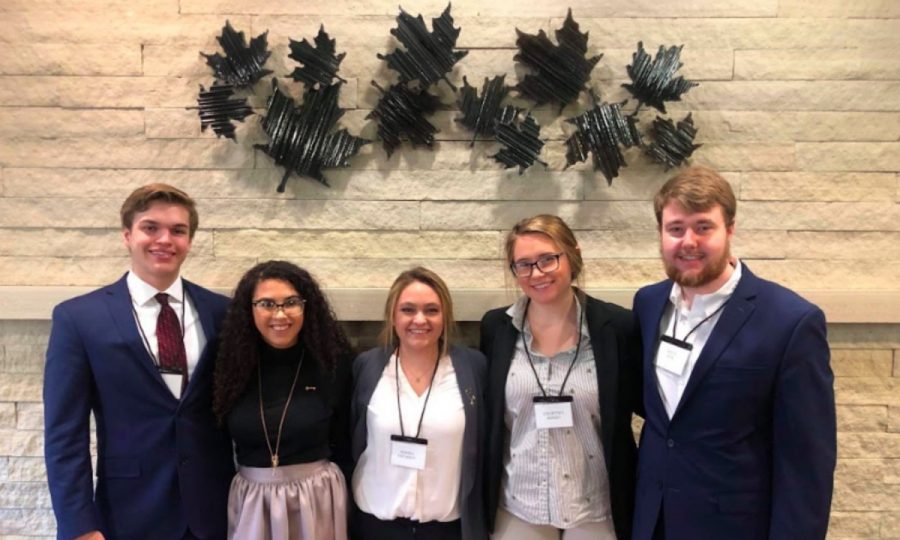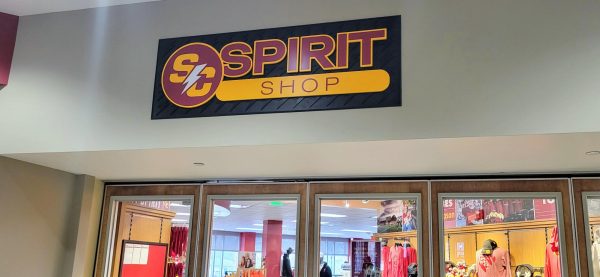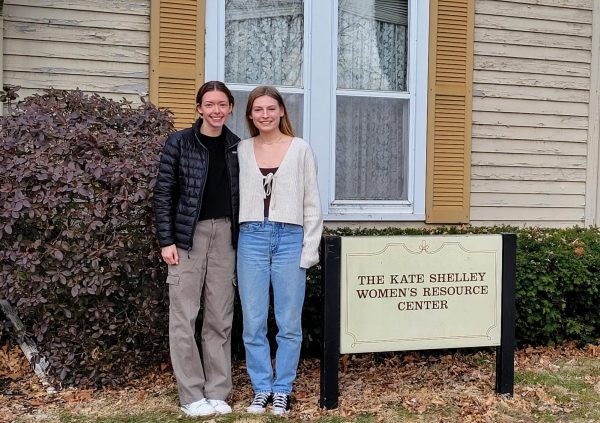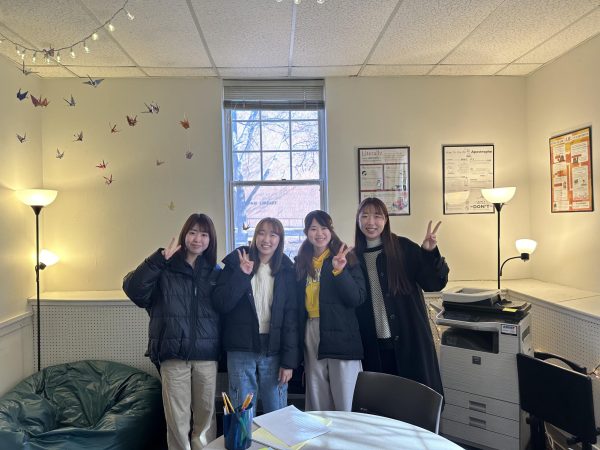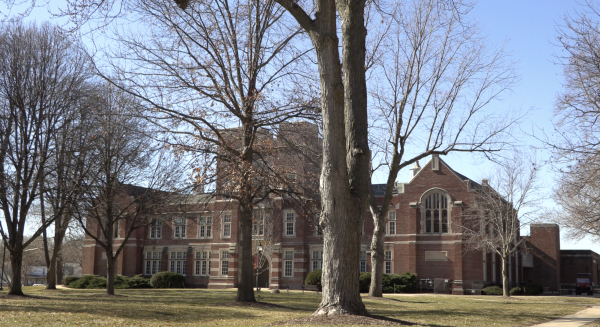Board of trustees approves faculty cuts, looks to move college forward
February 13, 2019
Simpson College’s board of trustees met Friday in Hubbell Hall, where it approved the faculty and department eliminations announced last semester and discussed future business for the college.
Student Body President DJ Duve said he and other representatives from the Student Government Association, Campus Activities Board and Religious Life Community who attended the board meeting were present when the board voted to finalize the faculty cuts.
“I think with the financial standing of the college, cuts needed to happen,” Duve said. “I just wish there would have been more discussion amongst everyone, especially in this meeting, before the votes were cast.”
Duve explained that students speak to the board members during their annual fall meeting but do not usually speak during the February one. Instead, he said their goal at this meeting was to learn what they could and communicate what happened at the meeting to the student body.
Duve said he would have liked to have spoken to the board about Simpson’s mission statement “because that talks a lot about diversity and the arts, and that’s a lot where our cuts are coming from.”
Although he and the other student representatives attended the full group meeting as observers, they did meet and discuss with their individual working committees—which are comprised of students, faculty and board members—prior to the full meeting.
Student Body Vice President Jailyn Seabrooks said the faculty cuts were one of the issues the Learning Programs Committee, which she is part of, discussed before the full group meeting.
Since it was her first board meeting, Seabrooks said she was glad to learn how the meeting procedure works but was also disappointed students weren’t able to speak directly to the board.
“Obviously the board and the administration has a responsibility to keep our college afloat and keep our budget in order and all of those things,” she said. “But I think if we had the gotten the chance to speak, we could have maybe spoken to more of the human connections that we have with the professors and what tenured professors mean for us and just maybe given some suggestions on how we would like budget cuts to look going forward.”
She added that while the board members come to campus only a few times a year, Simpson is a home for students who are here year round and therefore are impacted when their professors are no longer here.
Another agenda item the Learning Programs Committee addressed in its meeting, and also that the full group discussed later, was approving tenure requests for four professors: Matthew Lau, April Drumm-Hewitt, Mark Siebert and Mimi Kammer.
“And so all were promoted to associate professor and received tenure, and so that was a very satisfying role that I got to play,” said Academic Dean Kent Eaton, who is part of the Learning Programs Committee.
Eaton said his committee also discussed a proposed change to the faculty handbook which would have restricted the college’s ability to eliminate tenured positions, putting the handbook in better alignment with guidelines set forth by the American Association of University Professors.
The handbook currently allows the college to eliminate a tenured faculty position or academic department without declaring financial exigency if there is not adequate enrollment in that particular field. However, Eaton acknowledged many people on campus think this policy is unacceptable according to the AAUP’s guidelines on laying off tenured positions.
The faculty voted to approve that handbook change in a meeting in December, but the board did not accept the proposed change. Eaton said the board members asked faculty and the administration to come back in a future meeting with new approaches in changing the handbook in a way they could ultimately approve.
“So they didn’t close the door on any future edits or changes to the handbook, but the ones that were brought forward this time needed more clarification,” Eaton said.
He said the board wanted to eventually get to a place where the handbook agrees with the AAUP’s guidelines but also that the college can’t abide by guidelines that would “jeopardize the financial welfare of the college.”
The college is not in a position where it sees the need to declare financial retrenchment, according to Eaton, and he made reference to the college’s consistent sources of revenue and its solid financial footing.
Other cost-saving measures he said the college had looked at before deciding on faculty cuts were salary reductions and also reductions to the minimal contribution to the college’s employees’ retirement accounts.
The board did, however, approve a change in the faculty handbook related to online graduate classes that provides department chairs a way to evaluate those classes, Eaton said.
Moving forward from cuts
Seabrooks said she hopes she and Duve will be able to increase students’ involvement in future situations where the board makes important decisions that impact the student body.
“We’ve been being really intentional with the administration about those goals and about saying, ‘This is the role that we think students should play in these processes, and this is kind of what we want to do to do that,’” she said.
She also said a goal of her and Duve’s is restoring a sense of community and bringing campus together in the wake of the division faculty cuts and the program prioritization process caused.
“That especially was a very visual way of kind of dividing our campus along program lines and saying like, ‘It’s an us versus them,’ like the programs at the top versus the programs at the bottom,’” Seabrooks said. “So we’re kind of trying to get past that in a lot of ways.”
Senior Class President Marisa DeForest, who also attended the meeting, said she thought the moral of the story of the board meeting was progress.
“We want to move past the atmosphere on campus as it is now, being very unsure, which we did address, which I was very thankful,” DeForest said.
She said board members were receptive to the idea of the college moving forward past the faculty cuts but also said the board didn’t want to ignore the harm the cuts have caused.
“They want to reframe it in the sense that we’re now moving forward, and things are going to start improving,” she said.
Duve said a common theme he had heard Steven Johnson repeat at the meeting was “the sky is not falling” and that Simpson is still a great place and will continue to be a great place.
Duve said other business the board conducted at the meeting included renewing the Simpson Promise for another year and discussing future capital campaign projects which include renovating apartments, Pfeiffer, the Carver Science labs and the third floor of Dunn Library.



